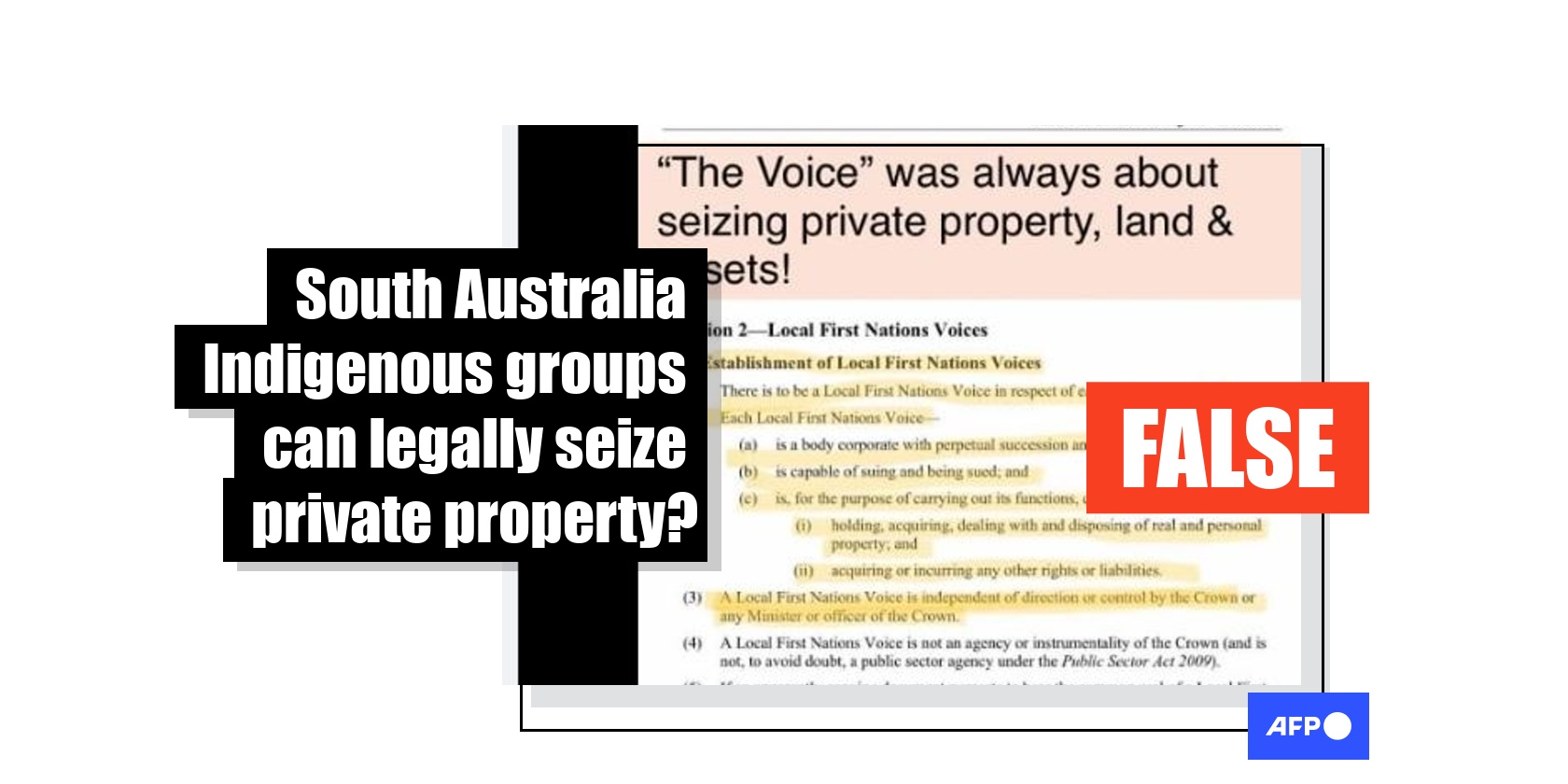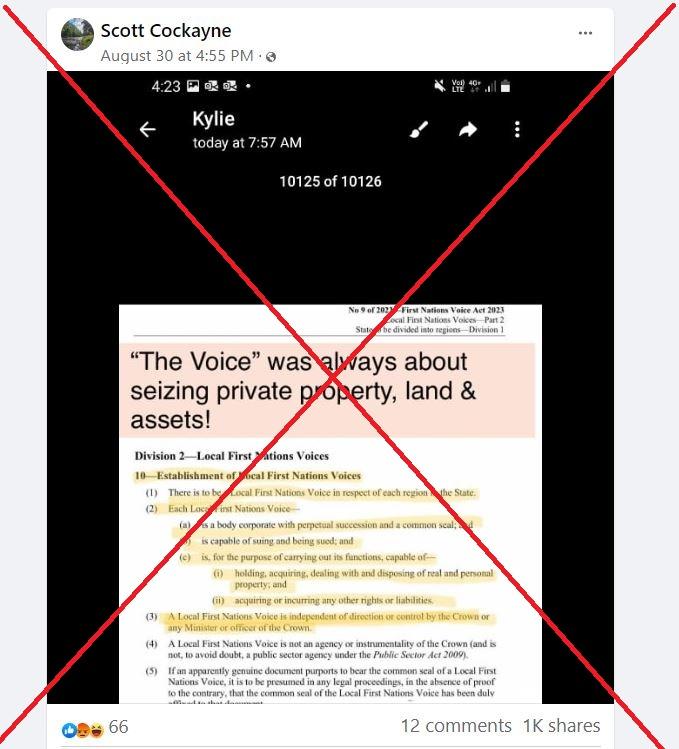
Posts falsely claim Australian Indigenous groups can 'seize private property'
- This article is more than two years old.
- Published on September 18, 2023 at 05:47
- Updated on September 18, 2023 at 06:12
- 2 min read
- By Kate TAN, AFP Australia
The claim can be seen on Facebook on August 30, 2023 in an image that has been shared 1,000 times.
Text overlaid on the screenshot showing part of a legal document reads: "'The Voice' was always about seizing private property, land & assets!"
The image shows section 10 of the First Nations Voice Act 2023, a law that came into force in the state of South Australia in May to create six local "Voice groups" and one state-level "Voice" (archived link).
Several clauses which state local First Nations "Voice" groups are capable of "holding, acquiring, dealing with and disposing of real and personal property" are highlighted in the image (archived link).

The false post surfaced ahead of a referendum on October 14 when voters will be asked to decide whether Indigenous Australians should have an institutional "Voice" in national policymaking.
If passed, Indigenous Australians -- whose ancestors have lived on the continent for at least 60,000 years -- would be recognised in the constitution for the first time.
The false claim has also circulated on individual Facebook pages and Facebook groups among thousands of members who have campaigned for a "no" vote in the referendum.
According to the South Australian state government website, its "Voice" model "is different to the Federal Voice" and only relates to the state (archived link).
Legal experts told AFP the legislation grants the Voices rights similar to individual or corporate entities allowing them to buy and hold property, but not to seize it.
'Standard language'
University of Adelaide law lecturer Anna Olijnyk said the law does not "give the South Australian First Nations Voice, or the Local Voices established by the Act, power to seize private property, land or assets" (archived link).
"The sections give the Voices the ability to hold, acquire, or deal with property," she told AFP on September 4. "That means the Voices can buy, sell, and own land and things just like any ordinary person or corporation can."
"There is no current bill in South Australia that would authorise the state's First Nations Voice to seize land, and I am not aware of any plans for such a bill," she added.
James Marsh, president of the Law Society of South Australia, also said the legislation uses "standard language" that permits the Indigenous groups to buy property -- such as an office -- in the usual way.
Similar clauses have been used in laws pertaining to other statutory bodies in South Australia reviewed by AFP, including waste management body Green Industries SA and clauses relating to the Adelaide University Union (archived links here and here).
A spokesperson for the Attorney-General's Department in South Australia also told AFP on September 5 that the Indigenous groups "do not have the power to compulsorily acquire land or private assets".
"The legislation simply enables those entities to exist as a body corporate, with the ability to -- for example -- rent office space for use in connection with its operations," the spokesperson said.
AFP has previously debunked claims these Indigenous organisations will take away private property or land here, here, and here.
Copyright © AFP 2017-2026. Any commercial use of this content requires a subscription. Click here to find out more.
Is there content that you would like AFP to fact-check? Get in touch.
Contact us
